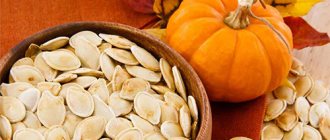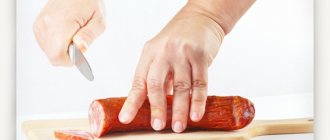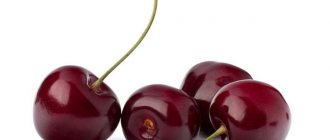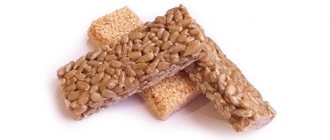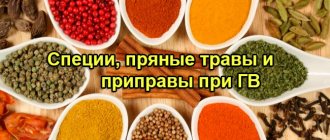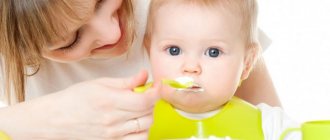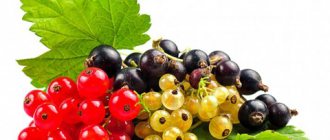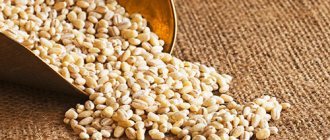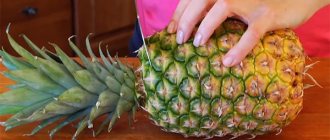During pregnancy, many women develop unusual taste preferences. During breastfeeding, seeds saturate the body with the necessary amount of vitamins and minerals. However, we should not forget about the norm of their use. When breastfeeding, they are selective in their choice of foods. They are processed in the body and enter the baby’s digestive system in a different form. That is why before you start using it, you need to understand in detail the features of the product.
Is it possible to eat seeds during breastfeeding, and in what volume?
The opinion of modern medicine regarding the use of sunflower and pumpkin seeds during breastfeeding is clear. If there are no direct contraindications to taking them, then they can be eaten by a young mother.
However, it is definitely worth observing moderation, as, in fact, in everything. At the same time, women after a cesarean section should eat seeds and nuts with extreme caution. This is due to the fact that they can cause constipation, which is contraindicated during the postoperative recovery period.
First of all, let's figure out when you can start eating your favorite treat. Due to the fact that the product is not hypoallergenic, seeds should not be included in the diet during breastfeeding in the first month, despite their undeniable benefits.
It is better to postpone this moment for several months after the moment of birth, at least three. By this period, the baby’s digestive system will become more adapted to many foods, and problems should not arise.
It’s worth starting with a very small amount, just a few grains are enough. If the baby does not have a negative reaction, then gradually the volume of the product consumed can be increased. However, you should not approach this moment fanatically. Doctors recommend limiting yourself to 60 grams. At the same time, the frequency of use during breastfeeding should not exceed three times a week.
Important! If, nevertheless, the baby has a mild allergic reaction to grains, then their use should be discontinued and repeated no earlier than after a few months.
When can I give it to my child?
Pumpkin seeds are difficult to digest, so pediatricians do not recommend including them in your child’s menu until he reaches the age of three.
The product should be offered to the child after heat treatment; you can lightly fry it in a frying pan. The seeds are cleaned or care is taken to ensure that the child does not eat them with the peel. The permissible daily dose for three-year-old children is 50 g. Pumpkin seeds should be introduced into the child’s diet gradually, as individual intolerance to the product may occur. Pumpkin seeds are a popular natural remedy against intestinal parasites. The product should be offered to the child raw for such purposes. Pumpkin seeds are beneficial for a growing body:
- strengthen bones and cartilage tissue;
- promote growth;
- improve digestive function;
- cardiovascular systems;
- thyroid gland;
- brain;
- increase immunity.
Pumpkin seeds are famous for their ability to save you from motion sickness in transport. Literally 15-20 grains will relieve nausea and normalize the child’s condition while traveling.
Which seeds are healthier and what are their benefits?
There are a large number of grains consumed as food, and each type has its own beneficial properties. In our latitudes, pumpkin and sunflower seeds are the most popular. That is why we will focus our attention on them.
Sunflower seeds during breastfeeding are of great benefit to the body of mother and baby. Of course, if they are consumed within the recommended limits.
What are the benefits of sunflower seeds:
- are a source of healthy fiber;
- help to establish the proper functioning of the gastrointestinal tract, which will help “get rid of the belly after childbirth”;
- due to the high content of vitamin E, they have a positive effect on the condition of the skin, as well as the body as a whole;
- lower cholesterol levels, which prevents the formation of blood clots;
- normalize the functioning of the thyroid gland, which is responsible for hormonal regulation in the body;
- contain a large amount of protein - the main building material for body cells;
- gently and gradually reduce blood pressure, which makes them useful for hypertension;
- contain a sufficient amount of iron, which is involved in the process of saturating the blood with oxygen.
Pumpkin seeds are no less useful during breastfeeding. However, their consumption rate is even lower than that of sunflower grains.
Benefits of pumpkin seeds:
- contain B vitamins, as well as A, C, E and D;
- they contain the most important microelements: magnesium, phosphorus, potassium, magnesium, iron, zinc, copper, selenium, sodium and calcium;
- the seeds contain: up to 50% vegetable fats, 25% proteins, 15% carbohydrates, as well as dietary fiber;
- due to the content of zinc and phosphorus, they have a positive effect on brain function, therefore they are indicated for severe mental stress;
- Vitamin C helps strengthen the immune system;
- have a positive effect on the psychological state, relieve postpartum depression;
- due to the content of vitamin A, they improve vision;
- have a positive effect on the functioning of the kidneys and urinary system as a whole, preventing the development of inflammatory processes;
- reduce blood glucose levels;
- regulate cholesterol levels, preventing the formation of plaques on artery walls;
- promote the removal of toxins and harmful substances, including lead and cadmium;
- Cucurbetin, contained in the seeds, has an anthelmintic effect;
- promote gentle cleansing of the liver from fatty deposits;
- have a beneficial effect on the skeletal system due to the vitamin D content;
- help improve the condition of skin and nails;
- help cope with nausea during motion sickness on the road and during boat trips;
- prevent the appearance of disturbances in the process of defecation, providing a mild laxative effect;
- normalize blood pressure levels;
- have a positive effect on the condition of the joints, therefore preventing the development of arthritis.
The third most popular type is flax seeds. If doctors have a relatively unanimous opinion regarding pumpkin and sunflower, then regarding flaxseeds the information is quite contradictory.
Canadian scientists prove that their use in the last months of pregnancy, as well as during lactation, is undesirable. The fact is that flaxseed oil affects a woman’s hormonal levels, which can trigger premature birth.
However, domestic scientists see great benefits in their use during breastfeeding. Let's figure out what the obvious benefits are.
Flaxseed oil is a leader in the content of polyunsaturated fats, especially Omega 3. Thanks to this, its consumption has a positive effect on the condition of the mother’s body, and also promotes the development of the cellular structures of the child’s brain.
Flaxseed oil has a beneficial effect on the functioning of the gastrointestinal tract, endocrine system, and kidneys. Eating flax seeds can significantly speed up recovery after childbirth. However, in their use it is also necessary to observe strict measures. It is better to limit yourself to adding a teaspoon of seeds to your morning porridge or vegetable salad.
Therefore, it is quite difficult to decide unambiguously whether breastfeeding women can eat seeds. Each type of seed has undeniable benefits, but possible harm must also be taken into account. The introduction of any product into the diet should be gradual. It is necessary to start with a small amount and increase it very gradually so as not to cause a negative reaction from the health of the baby.
Effect on lactation
Fatty acids in pumpkin seeds affect the active production of milk, so they can cause an increase in its quantity, and if abused, even hyperlactation if the mother is prone to it.
There is an opinion that when a nursing woman regularly eats various seeds and nuts, the fat content of milk increases. But experts say this is unlikely. The fat content of mother's milk is an individual parameter. And for every mother, it adapts to the needs of her baby.
The influence of diet on lactation, according to researchers, lies in adjusting the quality of products. In other words, the beneficial and harmful properties of food are transferred to breast milk. But it is impossible to qualitatively change its composition by adjusting nutrition.
What threat can seeds pose during breastfeeding?
Seeds during breastfeeding can bring not only benefits, but also harm, therefore, before deciding whether it is possible or not, you need to know about the possible consequences of taking them.
Possible negative impact:
- Due to the fact that any seeds contain protein, they can act as an allergen. Most often this manifests itself in the form of skin reactions, but the child may experience breathing problems.
- The baby may experience problems with the digestive tract: diarrhea, bloating, colic and flatulence.
- The phosphorus content in seeds is the reason for limiting their consumption in women with impaired renal function. This is due to the fact that this trace element can accumulate in the body and cause the formation of kidney stones.
- May lead to weight gain if consumed in excess. This is due to the very high calorie content of the product.
- Eating seeds in large quantities can lead to fluid retention in the body and, as a result, increase blood pressure.
- Salt, often added to roasted sunflower and pumpkin seeds, also causes fluid retention.
- Dirt and germs found on seed shells can lead to eating disorders.
- The shells of the seeds can lead to the destruction of tooth enamel in the process of eating them. It is better to learn to peel them with your hands or use already peeled seeds for food.
How many seeds can you eat?
It is not recommended to combine grains with any other product: eat them in between other meals. As for fried seeds, everything is good in moderation: fry them yourself in a minimal amount of oil.
Subsequently, you will be able to eat about 80-100 grams of grains per day. This will be enough to get the required amount of healing microelements and vitamins from them, improve the functioning of the intestines and stomach, and prevent the possible occurrence of cardiovascular diseases, thrombophlebitis and worms.
Contraindications
There are a number of restrictions regarding the consumption of sunflower and pumpkin grains during breastfeeding. It is important to consider them before you start introducing this type of product into your diet.
Use is undesirable for:
- tendency to urolithiasis;
- increased body weight, and especially obesity;
- disorders of the digestive system, especially a tendency to constipation;
- previously identified allergic reactions to the introduction of foods into the diet of a nursing mother;
- disorders of water-salt metabolism and the presence of episodes of edema.
Calorie content
Seeds are a fairly high-calorie product. When thinking about whether to eat them, you need to take this point into account.
Table: Calorie content of different types of seeds
| Type of seeds | Proteins (per 100 g) | Fats (per 100 g) | Carbohydrates (per 100 g) | Calorie content (per 100 g) |
| Sunflower | 20.7 g | 52.9 g | 3.4 g | 578 kcal |
| Pumpkin | 24.5 g | 45.8 g | 4.7 g | 556 kcal |
| Sesame | 19.4 g | 48.7 g | 12.2 g | 565 kcal |
| Linen | 18.3 g | 42.2 g | 28.9 g | 534 kcal |
How to eat seeds correctly
Most women are interested in the question of whether it is possible to roast sunflower seeds while breastfeeding. There is no categorical prohibition. But there are a few things to consider.
It is important to eat healthy foods while breastfeeding. The seeds contain a huge amount of vitamins and microelements, however, most of them are destroyed during prolonged heat treatment. And, consequently, only empty calories remain in the product, but nutritional value is lost. Therefore, it is better to eat raw or dried seeds.
What points are important to consider:
- It is important to observe moderation when consuming seeds. Fifty grams will do no harm, but a large plate of fried seeds will only bring digestive problems and a large number of extra calories.
- Before introducing a new product into your diet while breastfeeding, you need to eat just a few seeds and wait a pause of twenty-four hours. If there is no negative reaction, then the amount gradually increases.
- If it is not possible to prepare the product yourself, then it is better to choose a trusted manufacturer. Dirt on the shell can cause food poisoning. In addition, the surface may contain various microorganisms, as well as parasites (for example, worm eggs).
- Sunflower seeds should be thoroughly washed before cooking. Only after this should you begin the actual preparation.
- It is recommended to cook the seeds in the oven at a temperature of about 190 degrees Celsius. You can dry them in a frying pan, but to do this you need to stir them constantly to prevent burning.
- It is better to consume the seeds in their pure form, and not as part of sweets. Halva and kozinaki are definitely attractive in a culinary sense. But their consumption should be dosed due to the sugar they contain.
- Pumpkin grains must be cleared of pulp before cooking. You can wash them if you wish, because they were inside the vegetable. They require more time to bake in the oven. The dish is ready approximately thirty minutes after placing it in a preheated oven. The temperature regime is the same as for sunflower seeds.
- It is important to consult with your pediatrician before introducing this product into your diet; he will give more detailed recommendations.
Rules of consumption
To get the maximum benefit from pumpkin seeds, you need to include them fresh in your diet. It is advisable to peel the seeds immediately before eating, rather than in advance. Also, nursing mothers need to know that due to the adaptation of the baby’s digestive system in the first three weeks, it is not advisable to consume pumpkin seeds.
For the first time, you need to eat only 10-14 grams per day, which is about five pumpkin seeds. It is better to eat them before lunch to monitor the baby’s reaction. Undesirable manifestations of a new food in a baby: upset stomach, redness of the skin.
If there are no side effects, you can increase the amount of seeds eaten. The optimal rate is half a glass or less. If you increase the volume, the benefit can turn into harm. The main problem with overeating is indigestion.
To avoid poisoning, store-bought seeds should be dried in the oven and then kept in warm water for a short amount of time. This method will remove the bitter taste.
